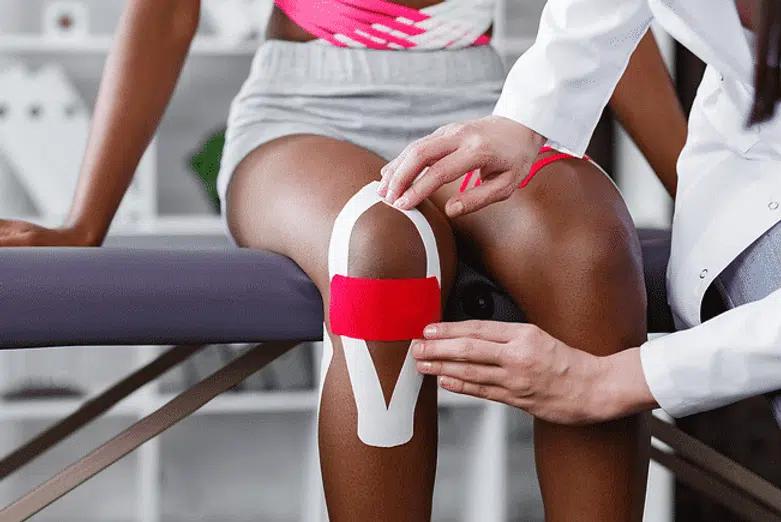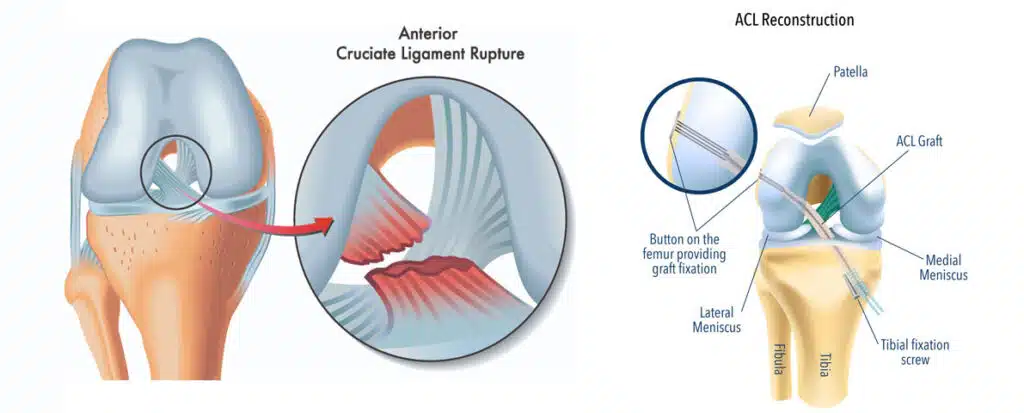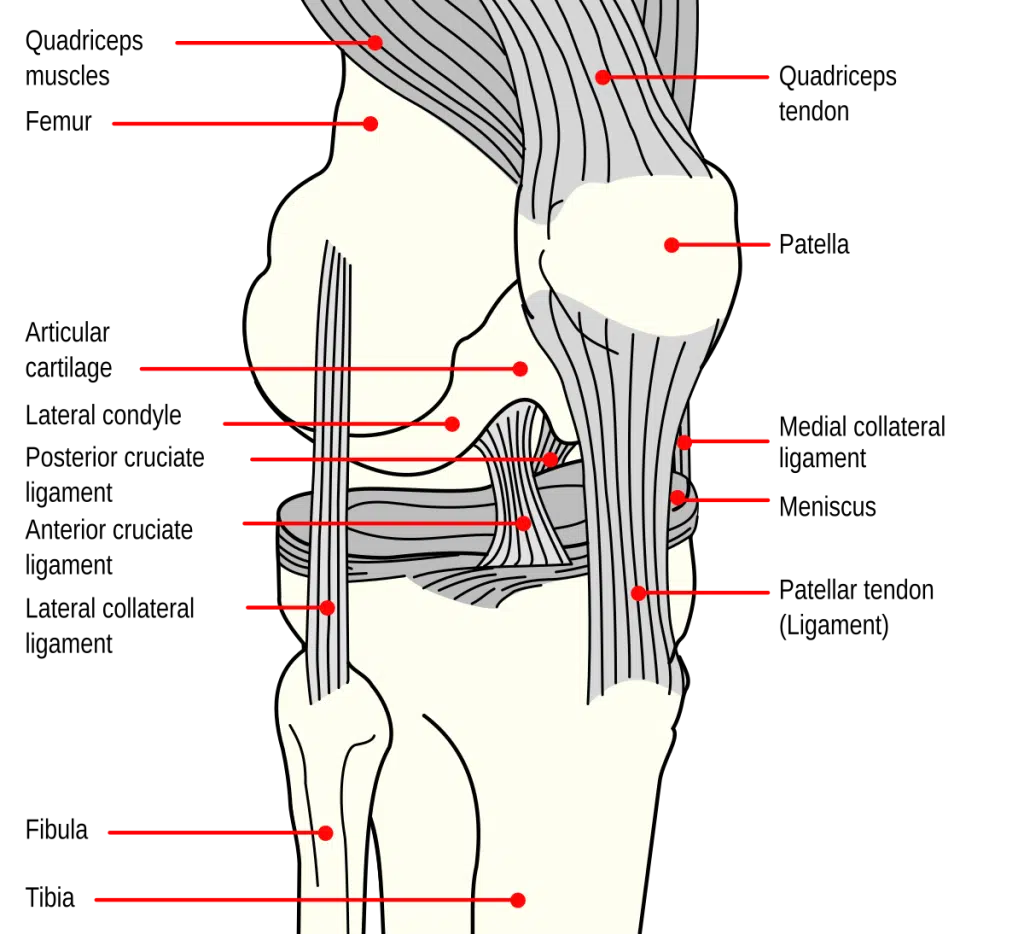Ligament injuries can disrupt your active lifestyle, causing pain, instability, and long recovery periods. However, with modern advancements in regenerative medicine, healing has become faster, safer, and more effective. At Winter Park Regenerative Medicine, our specialists use cutting-edge, non-surgical treatments to help your body heal naturally. Whether your injury results from sports, an accident, or repetitive movement, we provide customized regenerative therapies that restore your strength, flexibility, and confidence.
Everything You Need to Know About Ligament Injuries:
Ligaments connect bones and stabilize joints. When you stretch them beyond their limit or tear them, a ligament injury occurs. These injuries often result from sudden movements, awkward landings, or direct impacts. While athletes frequently experience ligament damage during sports, anyone can injure a ligament during daily activities such as slipping, twisting, or improper lifting.
Types of Ligament Injuries:
Experts categorize ligament injuries into three grades based on severity:
- Grade 1 (Mild):
The ligament stretches slightly, but remains stable. You may feel minor swelling or tenderness. - Grade 2 (Moderate):
The ligament partially tears, causing noticeable pain, swelling, and instability in the affected joint. - Grade 3 (Severe):
The ligament completely tears or ruptures, resulting in severe pain, swelling, and loss of joint function.
Commonly Injured Ligaments:
While any ligament can suffer damage, certain areas face greater risk due to frequent use or stress.
1. Anterior Cruciate Ligament (ACL)
The ACL, located in your knee, frequently tears during abrupt stops, pivots, or awkward landings in sports.
2. Medial Collateral Ligament (MCL)
A blow to the outer knee can injure the MCL, causing inner knee pain and instability.
3. Lateral Ankle Ligaments
An inward roll of your foot (inversion) can strain or tear these ligaments, leading to a painful ankle sprain.
4. Rotator Cuff Ligaments
Sudden impact or repetitive shoulder motion can injure ligaments supporting your rotator cuff, weakening your shoulder.
5. Wrist and Thumb Ligaments
Falling on an outstretched hand or repetitive gripping can stretch or tear wrist and thumb ligaments.
Causes of Ligament Injuries:
Several factors increase your risk of ligament injury:
- Sudden twisting or impact during sports or accidents
- Overuse or repetitive strain from constant movement
- Skipping warm-ups before physical activity
- Age-related degeneration that reduces flexibility
- Weak muscles or poor balance that stress the joints
By understanding these causes, you can take proactive steps to protect your ligaments and minimize injury risks.
Symptoms of Ligament Injuries:
Recognizing ligament injury symptoms early can help you recover faster. You may experience:
- Sharp or sudden pain at the injury site
- Rapid swelling and bruising
- Limited joint movement
- A popping sound when the injury occurs
- A feeling of looseness or instability in the joint
If these symptoms persist, seek professional care immediately to prevent further damage.
Diagnosing Ligament Injuries:
At Winter Park Regenerative Medicine, our team performs a detailed medical evaluation to diagnose your ligament injury. We begin with a physical examination, followed by imaging tests such as MRI or ultrasound to determine the injury’s severity. After diagnosis, we create a personalized treatment plan that aligns with your body’s needs and your recovery goals.
Conventional vs. Regenerative Treatment
Traditional ligament injury treatments including rest, ice, compression, bracing, or surgery often manage symptoms without promoting true healing. In contrast, regenerative medicine activates your body’s natural repair mechanisms. Instead of suppressing pain, regenerative therapies restore damaged tissues and strengthen ligaments at their core.
Regenerative Treatments for Ligament Injuries:
At our clinic, we provide non-surgical regenerative treatments that accelerate healing and restore strength.
1. Platelet-Rich Plasma (PRP) Therapy
During PRP therapy, we draw a small amount of your blood, process it to extract platelets and growth factors, and inject it into the injured ligament. These components trigger rapid healing and tissue regeneration.
Benefits of PRP Therapy:
- Speeds up ligament recovery
- Strengthens weakened tissue
- Reduces inflammation naturally
- Helps you avoid surgery
2. Stem Cell Therapy
We use your body’s stem cells taken from bone marrow or fat tissue to repair torn ligaments. Once injected into the damaged area, these cells regenerate healthy tissue and restore joint stability.
Advantages of Stem Cell Therapy:
- Repairs torn or degenerated ligaments
- Encourages long-lasting healing
- Decreases inflammation and chronic pain
- Improves overall joint strength
3. Prolotherapy
In prolotherapy, we inject a natural dextrose solution into the injured area. This solution stimulates your body’s healing response and encourages new collagen growth, strengthening weak ligaments.
Benefits of Prolotherapy:
- Boosts natural healing and collagen production
- Stabilizes loose joints
- Relieves chronic ligament pain
- Requires minimal downtime
The Healing Process with Regenerative Medicine:
After treatment, your body undergoes three healing phases:
- Inflammation Phase (Days 1–7):
Your body sends healing cells to the injured area, causing mild soreness or swelling. - Repair Phase (Weeks 2–6):
New collagen fibers form, reinforcing ligament strength. - Remodeling Phase (Months 2–6):
The ligament regains flexibility and stability, allowing full recovery.
Our specialists monitor every phase closely and adjust your plan to ensure optimal healing.
Why Patients Choose Winter Park Regenerative Medicine:
Patients across Winter Park trust us because we focus on healing from within. We combine advanced regenerative technologies with personalized care to deliver outstanding results.
What Makes Us Unique:
- Board-certified regenerative medicine specialists
- State-of-the-art diagnostic and injection techniques
- Customized treatment plans
- Compassionate follow-up and long-term support
Preventing Ligament Injuries:
Although you can’t always avoid accidents, you can lower your risk of ligament damage by following these steps:
- First of all, warm up properly before exercising.
- Additionally, strengthen surrounding muscles for better joint support.
- Moreover, wear supportive footwear to reduce strain on your ligaments.
- In addition, avoid jerky or uncontrolled movements that can cause ligament injuries.
- Finally, eat a balanced diet that supports joint and ligament health.
When to Seek Treatment:
If pain, swelling, or instability continues beyond a few days, don’t ignore it. The sooner you visit our clinic, the better your recovery outcome will be. Our experts at Winter Park Regenerative Medicine provide comprehensive assessments to identify the best regenerative therapy for your condition. We focus on getting you back to your daily activities stronger and pain-free.
Schedule Your Consultation Today:
You don’t have to let ligament injuries hold you back. Our advanced regenerative treatments including PRP therapy, stem cell therapy, and prolotherapy help your body rebuild damaged ligaments naturally.
FAQs About Ligament Injuries:
1. Can regenerative medicine completely heal ligament injuries?
Yes. PRP and stem cell therapies repair tissue at a cellular level, leading to long-term recovery rather than temporary relief.
2. How long does recovery take?
Recovery depends on the injury’s severity, but most patients notice improvement within a few weeks and full recovery in a few months.
3. Is regenerative therapy painful?
No. We perform all treatments with local anesthesia, ensuring minimal discomfort and quick recovery.
Conclusion:
Ligament injuries can restrict movement and limit your quality of life but you can heal naturally with the right treatment. At Winter Park Regenerative Medicine, we empower your body to repair itself using advanced regenerative therapies that rebuild strength and stability from within. Don’t wait for your condition to worsen. Schedule your consultation today and take the first step toward a pain-free, active lifestyle.



